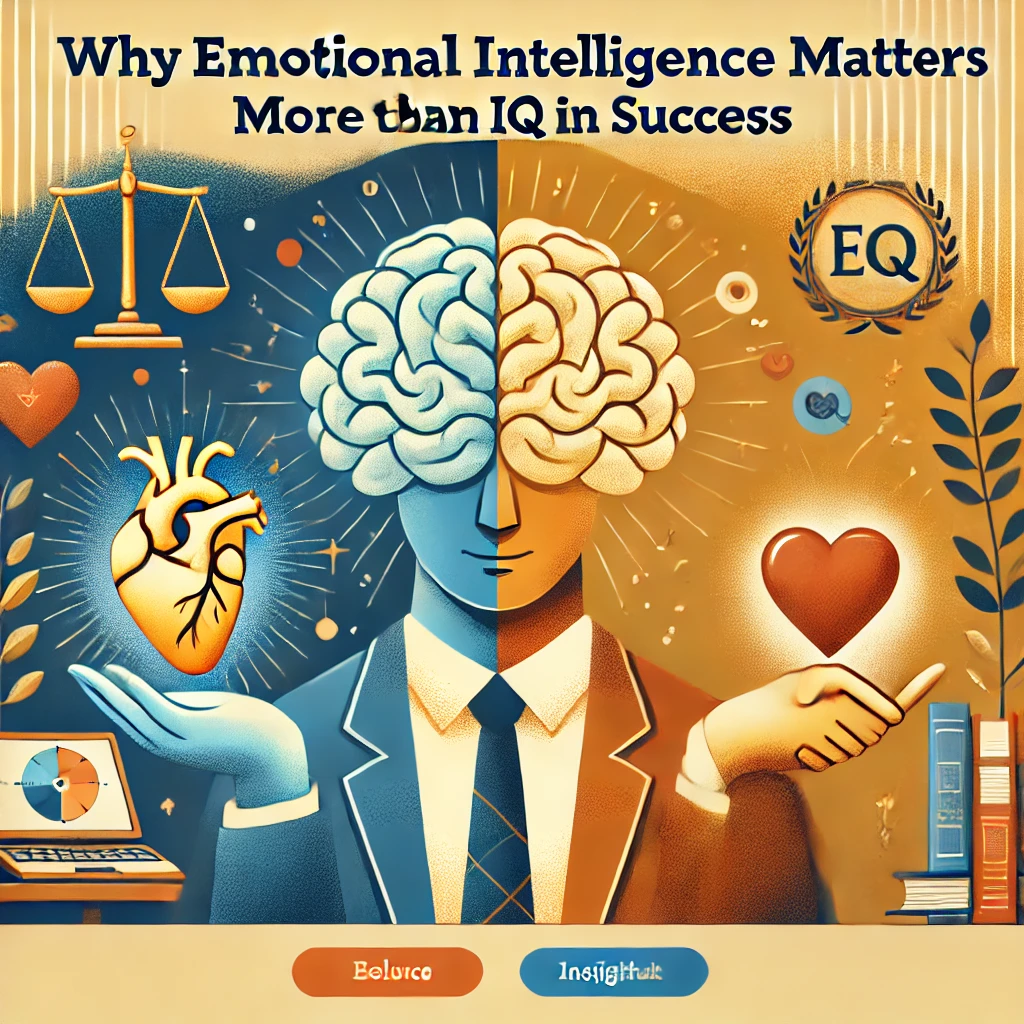Success is often associated with intelligence, measured by IQ (Intelligence Quotient). However, research and real-life examples suggest that Emotional Intelligence (EQ) plays a far more crucial role in determining success in both personal and professional life. While IQ may help you solve problems, EQ helps you navigate relationships, handle stress, and make better decisions. Here’s why Emotional Intelligence matters more than IQ in achieving success.
1. Understanding Emotional Intelligence (EQ)
Emotional Intelligence refers to the ability to recognize, understand, and manage your own emotions while also being able to influence and respond appropriately to the emotions of others. It consists of five key components:
- Self-awareness – Recognizing your emotions and their impact.
- Self-regulation – Managing emotions in a positive way.
- Motivation – Using emotions to drive success and achieve goals.
- Empathy – Understanding and relating to the emotions of others.
- Social skills – Building and maintaining healthy relationships.
2. The Limitations of IQ in Success
IQ measures cognitive abilities such as problem-solving, logical reasoning, and memory. While these skills are important, they don’t guarantee success. Many highly intelligent individuals struggle in their careers or relationships because they lack the ability to manage their emotions, communicate effectively, or work well in a team. IQ may help you get a job, but EQ determines how well you perform in it.
3. The Role of EQ in Career Success
Studies have shown that people with high Emotional Intelligence tend to achieve greater career success than those with just a high IQ. Here’s why:
- Better Leadership – Great leaders inspire and influence others, which requires high emotional awareness.
- Effective Communication – Understanding emotions helps in delivering clear and impactful messages.
- Conflict Resolution – People with high EQ can manage workplace conflicts more effectively.
- Adaptability – Success in any profession requires adapting to challenges and changes, which EQ supports.
4. Emotional Intelligence in Personal Life
Success isn’t just about professional achievements; it’s also about having fulfilling relationships and overall happiness. EQ plays a major role in:
- Building strong relationships – Empathy and social skills help in forming deep connections.
- Handling stress – Emotional regulation reduces anxiety and improves decision-making under pressure.
- Boosting self-confidence – Understanding and managing emotions leads to a healthier self-image.
5. How to Improve Emotional Intelligence
Unlike IQ, which is largely genetic, EQ can be developed over time. Here are some ways to enhance your Emotional Intelligence:
- Practice self-awareness – Reflect on your emotions and their triggers.
- Improve self-regulation – Take deep breaths and respond thoughtfully instead of reacting impulsively.
- Enhance empathy – Listen actively and try to see things from others’ perspectives.
- Develop social skills – Engage in conversations, practice active listening, and improve your communication.
- Manage stress effectively – Use relaxation techniques like meditation or journaling to stay calm under pressure.
Conclusion
While IQ can open doors, Emotional Intelligence determines how far you go in life. EQ helps you lead, connect, adapt, and thrive in ways that raw intelligence alone cannot. By developing your Emotional Intelligence, you enhance your personal and professional life, making success more achievable and fulfilling.
What’s your EQ level? Start practicing today and unlock your full potential!
